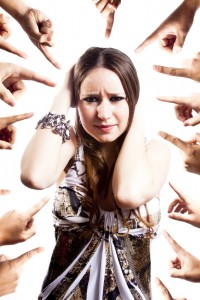What is Social Anxiety Disorder and how do you overcome it?
Hello, I am a Santa Rosa mental health provider, Dr. Eric Ryan—I help people learn to overcome their shyness, social anxiety, and related fears! In this sense I am a social anxiety doctor offering effective psychologically based therapy or counseling for severe shyness and social inhibitions. I would like to talk to you about your social anxiety or shyness and help you understand what social phobias are and how you can get help.
Shyness itself is different then Social Anxiety Disorder (Social Phobia) in that it is a common, adaptive personality trait, that is not associated with excessive distress and functional impairment present in Social Anxiety Disorder. A recent article in the New York Times speaks to this adaptive function: “Shyness: Evolutionary Tactic?”
Social Anxiety Disorder is like an intense social phobia of a number of social interaction and performance situations. According to the DSM-IV, the manual used to diagnose common mental disorders, Social Phobia creates a “marked and persistent fear of one or more social or performance situations, during which the person is exposed to unfamiliar people or possible scrutiny by others.” The individual fears he or she will act in a way or show symptoms that will be humiliating or embarrassing. The person then either avoids the situation or endures it with marked distress (see Anxiety & Avoidance). Many people who think they are “just really shy” may actually have Social Anxiety Disorder if they also experience functional impairment (like problems at work or home) due to the their social anxiety issues, and also have excessive levels of distress beyond normal shyness.
There are three types of Social Anxiety Disorder:
-
Performance: Some people with social anxiety primarily fear being observed and scrutinized by others in performance situations. Examples include giving a speech, being called on in a staff meeting, or making a formal presentation.
-
Limited Interactional: Other people primarily fear interacting with one or more people in social situations. For example, meeting and talking with new people at a social gathering, or other situations that require spontaneous conversation. This type of social anxiety occurs when it is just a situation or two that people fear (as opposed to many).
-
Generalized: Individuals with “Generalized” Social Anxiety Disorder have fears related to many situations, both in performance and social interaction scenarios. Because of this “generalized” social anxiety can be more limiting.
Untreated, Social Anxiety Disorder usually persists throughout ones life.
Most people develop Social Anxiety Disorder in their mid-teens although some develop it in childhood.
Social Anxiety Disorder is the third most common psychiatric disorder affecting as many as 39 million U.S. citizens.
Help is AVAILABLE! Please do not let your social anxiety or severe shyness stop you from getting help if you need it! Social Anxiety is a treatable problem and you can live a more fulfilling life and learn to make connections to others. Many people with social anxiety disorder seek help for other problems.
Typically the limitations, distress, and difficulties caused by the social anxiety result in you being more alone and isolated then you would otherwise be! Guess what can happen if you do not have healthy social outlets? You are at risk for becoming depressed! In fact most people who seek mental health treatment who have social anxiety, come in because they are depressed and never get treatment for the social anxiety (see Do I have Depression?)!
Click here to find out if you have an anxiety problem.



